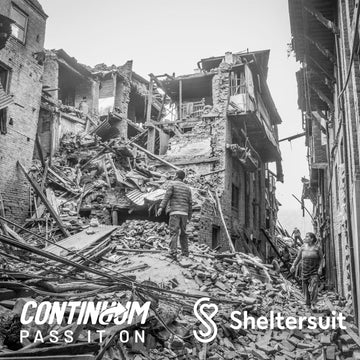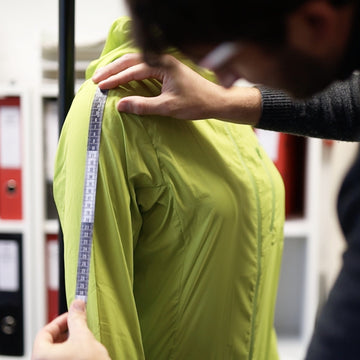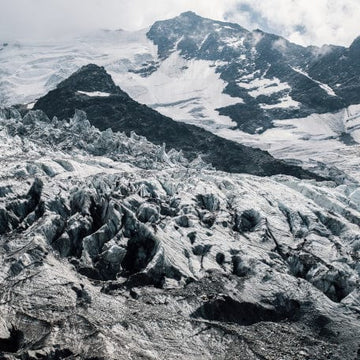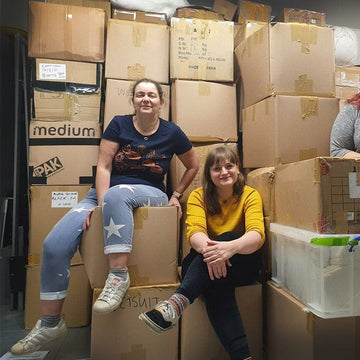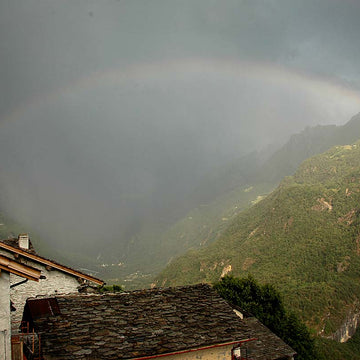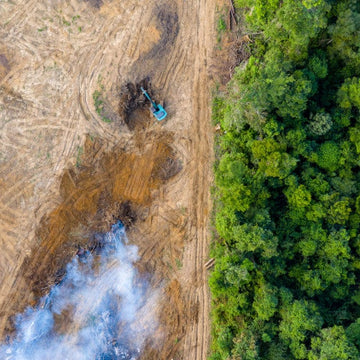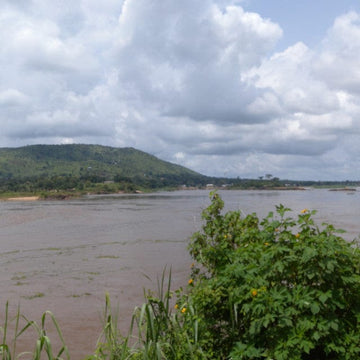
The outdoor industry’s hazardous chemicals can hurt more than just nature. We aim to eliminate them for cleaner air, water, and trails for the next generation.
From waterpoofs to wetsuits to bike suspension, the outdoor industry has a problem with potentially hazardous chemicals and toxins. They're used thoughout the production process when making outdoor clothing and equipment.
We work with our suppliers to prohibit the use of the most dangerous chemicals and lead the way to make a cleaner and more sustainable outdoor industry.
A Brief Overview
- Pollution and toxins in the outdoor industry
- Alpkit restricted substances list and route to zero hazardous chemicals
- Where can I find out more about hazardous chemicals?
Pollution and toxins in the outdoor industry
About 8000 synthetic chemicals are used in the clothing industry from material production through to the finished garment. The most commonly used chemicals that are hazardous in nature can include: fire retardants; volatile organic chemicals (VOCs); organophosphates; chloroprene; AZO dyes; polyfluorinated substances (PFASs) such as formaldehyde; and phthalates.
We do not profess to be expert in the understanding the nature and impact of all of the chemicals used in our production processes. However, we want to minimise our impact. We make cleaner and more sustainable outdoor clothing equipment by working with industry experts, collaborating with our mills and factories, and seeking 100% sustainably sourced materials wherever possible.
Alpkit restricted substances list and route to zero
We have specific policies in place to address the use of hazardous chemicals in our supply chain. We eliminate organophosphates in tents, PVC from our sleeping mats and all our DWRs are PFC-free.
We have a Restricted Substances List that all our factories and mills sign up to. It prohibits the use of the most hazardous chemicals. We adopt the Restricted Substances List used by the American & Footwear Association.
We sign up to ZHDC Roadmap to Zero to eliminate harmful chemicals from our supply chain.
Where can I find out more about hazardous chemicals and outdoor products?
There are many resources available online to learn more about hazardous chemicals.

![Balance [Mens]](http://eu.alpkit.com/cdn/shop/files/balance-mens-2025-reef.jpg?v=1768938614&width=768)
![Balance [Mens]](http://eu.alpkit.com/cdn/shop/files/Balance-mens-1.jpg?v=1768938614&width=768)
![Balance [Womens]](http://eu.alpkit.com/cdn/shop/files/balance-womens-2025-black.jpg?v=1768938686&width=768)
![Balance [Womens]](http://eu.alpkit.com/cdn/shop/files/Balance-womens-3.jpg?v=1768938686&width=768)
![Fortitude [Mens]](http://eu.alpkit.com/cdn/shop/files/fortitude-mens-2025-alder.jpg?v=1768849690&width=768)

![Fortitude [Womens]](http://eu.alpkit.com/cdn/shop/files/fortitude-womens-2025-alder.jpg?v=1764270237&width=768)


![Definition [Mens]](http://eu.alpkit.com/cdn/shop/files/Definition-men-2.jpg?v=1764357328&width=768)

![Definition [Womens]](http://eu.alpkit.com/cdn/shop/files/Definition-women-3.jpg?v=1764357395&width=768)



![Talini [Womens]](http://eu.alpkit.com/cdn/shop/files/talini-1.jpg?v=1768849600&width=768)


![Filoment Vest [Womens]](http://eu.alpkit.com/cdn/shop/files/womens-filoment-vest-2024-celestial-COLOUR-CHANGE.jpg?v=1762282643&width=768)
![Filoment Vest [Womens]](http://eu.alpkit.com/cdn/shop/files/Filoment-Vest_AW24_Womens_Chamonix_3908_1.jpg?v=1762282643&width=768)

![Filoment Hoody [Mens]](http://eu.alpkit.com/cdn/shop/files/AW25-Chamonix-JW-5042_2.jpg?v=1768939014&width=768)
![Filoment Hoody [Womens]](http://eu.alpkit.com/cdn/shop/files/womens-filoment-2024-celestial-COLOUR-CHANGE.jpg?v=1764356431&width=768)
![Filoment Hoody [Womens]](http://eu.alpkit.com/cdn/shop/files/Camping-Arran-9548_1.jpg?v=1764356431&width=768)








